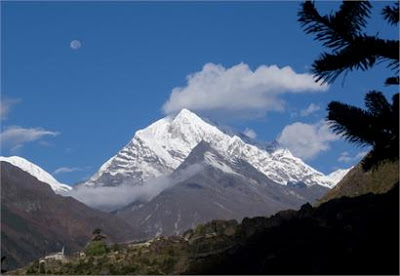with Beth Yahp about
The Mind of a Thief
Tuesday, 26 November 2013, 6.00 - 9.00 PM
60 Clovelly Road, Randwick 2031
 |
| Photo by Tracey Trompf |
For our last Memoir Club meeting of 2013, the inimitable Patti Miller joins us to talk about her search for identity and connection in the land she was born in, a stolen land. "Red-haired and freckle faced as they come", in middle age Patti discovers that she may have "some blackfella" in her (as an Aboriginal elder from her home town suggests), yet by her own admission her "mind is European, the mind of a thief".
Patti's journey takes her from "identity terror" through the silences, ambivalences and revelations of family, regional and national histories, and the stories and laws of the land and its peoples that have shaped her and her country.
Patti Miller grew up on Wiradjuri land in central west NSW. She is the author of the bestselling autobiographical texts, Writing Your Life (1994) and The Memoir Book (2007), as well as four other books: The Last One Who Remembers (1997), Child (1998), Whatever The Gods Do (2003), and her most recent book The Mind of A Thief (2012), which won the NSW Community and Regional History Prize in 2013. Patti gives memoir workshops in Paris and Writing the Senses workshops in Ubud, as well as teaches 'True Stories' for the Faber Academy.
Beth Yahp is originally from Malaysia. She is the author of a novel, various short fictions and non-fiction, some forgettable poems, and works for the stage and radio. Beth was recently awarded her Doctorate of Creative Arts from the University of Technology, Sydney, for her travel memoir documenting "detours through food, family and politics in Malaysia", which is presently being revised into a more or less palatable version. Beth currently teaches in the Masters of Creative Writing program at the University of Sydney.

When: last Tuesday of every month (new meetings starting next year: 25 March, 29 April etc.)
Time: 6.00 - 9.00 PM (come for a cuppa and help us set up at 5.30 PM - remember to bring your own cup!)
Where: The Randwick Literary Institute, 60 Clovelly Road, Randwick 2031. Tel: 02-9398 5203 (for directions and venue info). Street parking available. Clovelly bus 339 on the doorstep. For how to get there, see: http://randwickliteraryinstitute.com.au/faqs/
What: A communal space to meet other writers and readers and converse about all things to do with reading and writing memoir. We are interested in all kinds of life stories and in different ways of telling them. The genre of life writing and the possibilities of expanding and reworking the genre is exciting to us. Therefore we have a somewhat open and inclusive approach to what makes a memoir, and we hope you do too! Here is a space to connect with others and share ideas, questions and just hang out. Each meeting will start off with a talk, conversation or discussion about a particular topic or book, sometimes with a guest speaker or facilitator, then we move to an informal gathering and catch up.
Donation: $10 at the door for hall hire, refreshments and speakers.
Food: $15 for a plate of delicious vegetarian finger food (different each meeting).
Future Speakers: Look out for next year's program, now being developed. Do post any ideas you may have, with thanks!
RSVP: RSVP to alison.lyssa@sustainabletransport.com.au for room and catering purposes - don't forget to say if you want to order a plate of food.
Look forward to seeing you there! Please do pass information on to anyone who might be interested in this community gathering.
mem·oir /ˈmemˌwär/
Noun. A historical account or biography written from personal knowledge. An autobiography or a written account of one's memory of certain events or people.
"The story of my place might not tell me who I was, but if I could examine its weave, I might at least see what my cloak was made of." —Patti Miller
"It was only then that I was really aware of what had been going on and what I had been a part of without realising it... So when I read this story, it unlocked a volcano of unanswered questions, because the questions had never been asked. It was an opportunity to come to terms with the lot of repressed history—and history of repression."
—Philip Noyce, on reading the script for Rabbit Proof Fence
"What is it like to be a writer in Australia today? Australia is a nation of many Countries. Mine's Wiradjuri, which means of the rivers. I thought about this and in response I am Aboriginal first and everything I do is within that context. In writing as in life, it is impossible to separate the personal from the political. The political context is an integral part of the landscape..."
—Jeanine Leane
























